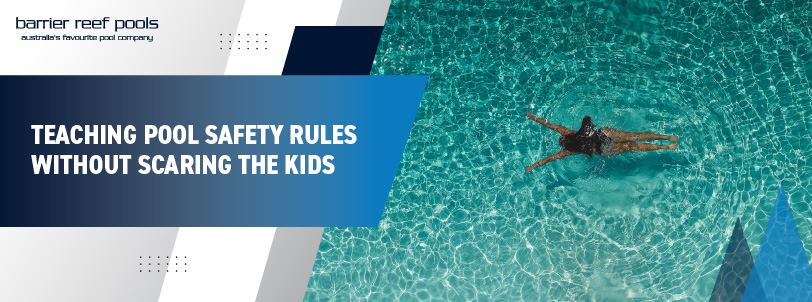Mineral Pools Vs Saltwater – What Is The Difference?
When choosing a sanitising system for your pool, knowing the pros and cons of the mineral pools vs saltwater can greatly impact the usage you get out of your pool, as well as how much you are willing to spend. Salt and mineral water have been known to be gentler on skin compared to chlorine, but there are some differences between the two. Read on to learn more!


By the end of this article, you'll learn:
- Mineral pools use minerals; saltwater pools generate chlorine from salt.
- Mineral water feels silkier and offers therapeutic benefits.
- Mineral systems are cheaper upfront; saltwater is cheaper long-term.
- Saltwater can corrode equipment; minerals may cause scaling.
- Choose mineral for comfort, saltwater for easier maintenance.
Let's learn more about Mineral Pools vs Saltwater Pools
Mineral Pool System
Mineral swimming and bathing have a long history, dating back to ancient times. By incorporating a mineral water system or using minerals to treat your pool water, you can significantly reduce chlorine usage by up to 50%. This process, known as electrolysis, involves converting minerals into small doses of chlorine through your pool chlorinator cell. The distributed chlorine effectively eliminates bacteria and algae, ensuring clean pool water. Moreover, the mineral compositions not only improve water quality but also have positive effects on the body. Key minerals found in swimming pool minerals, such as magnesium chloride, potassium chloride, and sodium chloride, can enhance the swimming experience by providing a “softer” feel to the water.
1
Detoxifying the skin
2
Relaxing the nervous system
3
Alleviating sensitive skin symptoms
What Is The Cost?
A mineral water system is a cost-effective option, with prices starting at around $700. It’s important to note that you don’t necessarily have to replace your existing chlorine or salt chlorinator when opting for minerals in your pool. Before converting, it is recommended to analyse the water and potentially change the pool filter. If you’re unsure about the process, it’s best to consult a local pool specialist who can provide expert guidance.
Additionally, ongoing expenses include replacing the mineral cartridge every 6 months (approximately $100 to $150). It’s worth mentioning that a mineral system requires the use of chlorine alongside the minerals to maintain water cleanliness, so this cost should be taken into account. However, using a mineral system is generally more cost-effective than relying solely on chlorine.
Minerals are around $30 per 3kg bag
What Are The Benefits?
- The water is softer – One of the major advantages of using a mineral water system is the exceptional water quality. The presence of minerals in the water has a calming effect on the skin, making it feel silky and gentle on the body and eyes. This not only helps prevent skin irritation but also safeguards clothes and hair from damage. Experience the soothing benefits of mineral water for your skin and overall well-being.
- Minimal wear and tear on your equipment – Your pool equipment and its components are resistant to harsh chemicals that can cause wear and tear on moving mechanisms and plastic parts over time. Rest assured that our pool equipment is built to withstand the effects of strong chemicals, ensuring its long-lasting durability and performance.
- Non corrosive – Mineral water is not corrosive to clothing, concrete and metal.
- Highly compatible with all pool types – Mineral is an excellent sanitising agent for all types of pools because it is gentle on the interior surface and does not cause any harmful effects. Enhance the cleanliness of your pool with mineral sanitisers.
- Eco friendly – With low chlorine levels, the water becomes environmentally friendly and safer.
What Are The Negatives?
One drawback of owning a mineral system is the need to use chlorine alongside minerals for effective water sanitisation. However, by combining chlorine with minerals, you can ensure proper water sanitation.
Why Should I Choose Mineral?
Mineral is a widely preferred option for individuals seeking a hassle-free pool maintenance solution that is gentle on the skin. It provides high-quality, impurity-free water, ensuring a safe swimming experience. When it comes to excellent value for money, a mineral system takes the lead. Enjoy easy pool maintenance with Mineral, the top choice for sanitising solutions.
Mineral systems produce high quality water that are free of impurities and toxins...
Saltwater System
Saltwater systems are equally popular amongst pool owners. A saltwater system still uses chlorine to clean the pool. The saltwater chlorinator converts the dissolved salt into chlorine to sanitise your pool water as it is needed. In short, you are generating your own chlorine from salt instead of adding traditional chlorine straight to the pool water. However, the dose of chlorine is less than a traditional chlorine pool. A saltwater pool is easy to maintain and depending on which pool type you have, it will require very little cleaning from the pool owner.
What Is The Cost?
Saltwater systems have a higher upfront cost compared to chlorine-based systems. However, they can save you money in the long run by reducing the need for purchasing a large quantity of chemicals. Typically, saltwater systems start at around $800, and salt itself is relatively inexpensive, with a 25-kilo bag costing around $10. Invest in a saltwater system to enjoy cost savings and a more eco-friendly swimming experience.

What Are The Benefits?
- Gentler on the body – Salt water is also known to be gentler on the skin and eyes and the water typically feels softer too.
- No harsh chemicals – The great thing about salt is it is non-toxic meaning you will not have to handle harsh chemicals to clean your pool. This is safer for the person cleaning the pool and people swimming in it.
- Compatible with solar devices and equipment – Salt works well in conjunction with all solar pool systems.
What Are The Negatives?
When water quality issues arise with saltwater pools they can be more complex to rectify. If you overdose your pool frequently with high doses of salt, any plants or grass near your pool area will more than likely suffer as a result. The same applies if you have lighting or accessories with metal parts in your pool or furniture items that contain metal around the pool area, they can rust and corrode over time.


Why Should I Choose A Saltwater System?
Saltwater systems are typically more expensive to install but you will gain the money back in the long run. The system also requires very little maintenance which is incredibly convenient if you’re a busy person. Salt is also quote cheap to purchase, compared to the usual chlorine and minerals. Additionally, salt is much safer to use and store.
So, What Is The Difference?
Saltwater and mineral pool systems are similar in many ways. However, there is a distinction between them. Saltwater pools utilise a combination of salt and chlorine, while mineral pools rely on minerals and chlorine. With a saltwater chlorinator, salt is converted into liquid chlorine, reducing the need for high doses of traditional chlorine. On the other hand, a mineral pool system uses minerals that are converted into small doses of chlorine through the same process. Both saltwater and mineral systems effectively sanitise water, eliminating bacteria and preventing algae growth. Explore the benefits of saltwater and mineral pool systems for optimal water maintenance and cleanliness.
While the water clarity of both systems is similar, the water quality of a mineral pool is far superior. Mineral pools use less chlorine to sanitise the water than a saltwater system does. If you are thinking of converting your pool or you are buying a pool and deciding on a treatment choice, it’s a good idea to discuss the options available to you with your pool builder, they can offer helpful advice regarding which system is best for you.
Our team here at Barrier Reef Pools are experts in the pool industry and we have many years experience installing fibreglass pools with all types of sanitising options. Give us a call today if you require further information, we are more than happy to answer any questions you may have.
A Quick Summary
Mineral water systems start at around $700. Additional ongoing expenses include cartridge replacements every 6 months which may cost between $100 to $150 with mineral bags costing around $30 for 3kg.
Mineral water is a great choice for those that want easy maintenance and water that’s softer on the skin. Mineral water is less corrosive and has minimal wear on pool equipment and mechanisms. The water itself is also gentler on the body and eyes compared to standard chlorine pools.
Saltwater systems can cost at a start of $800, with salt being relatively cheap at around $10 for a 25kg bag.
Saltwater pools are also gentle on the body in comparison to standard chlorine pools with the water typically feeling ‘softer’ The use of non-harsh chemicals to clean the pool also means saving money in the long run and bags of salt are also fairly cheap to buy. However, any metal accessories or furniture around the pool area may rust over time due to the saltwater.
It really depends on your preferences! Saltwater pools are known for being gentler on the skin and eyes, and they require less maintenance since the salt system generates chlorine automatically. On the other hand, mineral pools can provide a more luxurious swimming experience with added benefits like softer water and fewer chemicals. Consider what matters most to you for your Barrier Reef pool experience!

